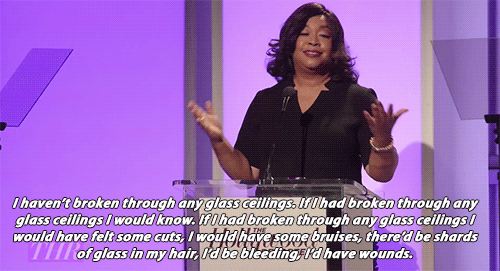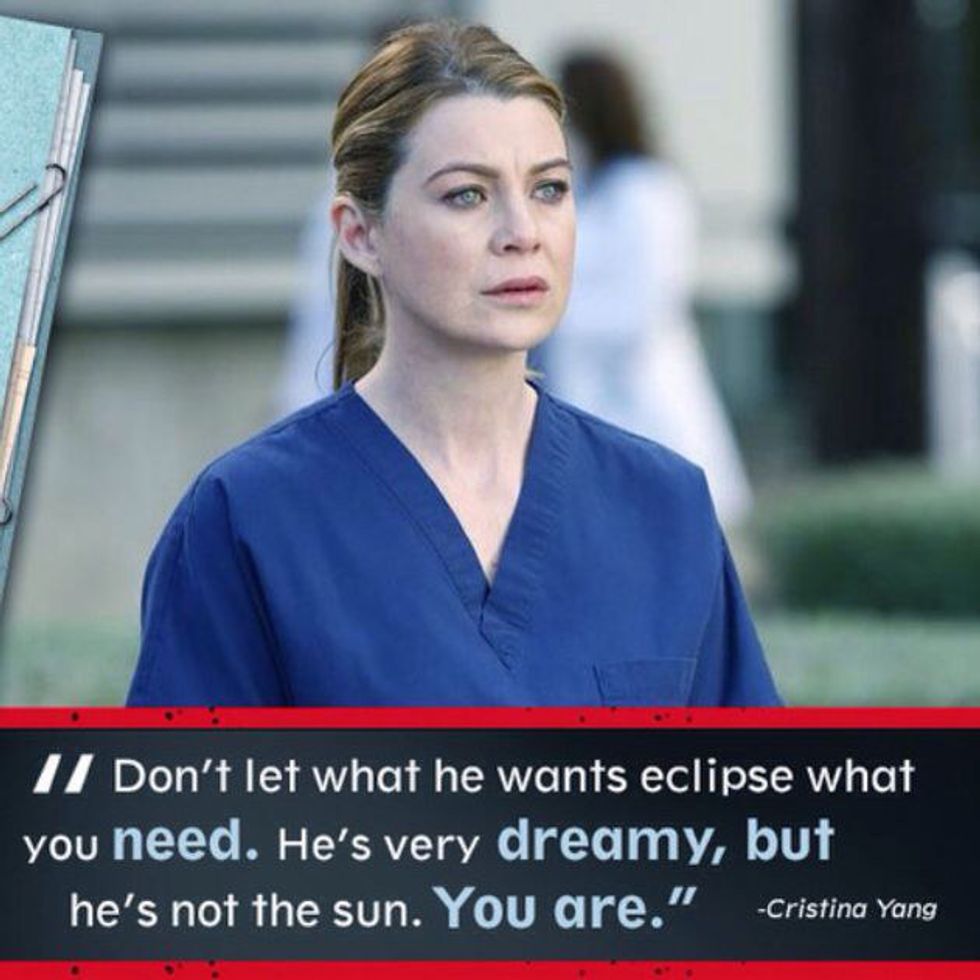Shonda Rhimes impactful reputation on television reigns supreme. On ABC, Rhimes takes control of every Thursday with the hashtag #TGIT, Thank God Its Thursday. Being a head writer and showrunner of her show Grey’s Anatomy, Rhimes creates an empire of strong, independent, but extremely flawed characters attempting to find their “person.” With the leading lady, Ellen Pompeo, commanding the attention of any viewer with their phenomenal performances. But besides the crazy drama that flows concurrently episode after episode, the significant moments Shonda Rhimes creates illuminate when characters fall. Rhimes manages to tackle important social issues such as: woman empowerment and racism.
Grey’s Anatomy focuses on the lives of several doctors as they tackle medical/surgical issues, as well as the tragedies of their lives. Rhimes chooses specific topics to have her characters interact with and the pain behind those messages. For example, the show produced a multi-racial lesbian couple, abortions/miscarriages, and crisis-like situations. Racism finds itself on the forefront of many episodes due to the diversity of the cast; another boundary Rhimes has pushed. The episode, “Something Against You” deals with the issue of white privilege and how to identify the facts. White privilege can be defined as the benefits from your race starting from birth. So in the case of the episode, one doctor betrays another and is afraid she did so because the two were both white. Rhimes utilizes the characters Dr. Maggie Pierce (played by Kelly McCreary) and Dr. Amelia Shepard (played by Caterina Scorsone) to discuss the issue of a certain occurrence in the show previously. Dr. Shepard figures that she didn’t believe a certain doctor due to the color of her skin, making her worrisome about her actions as it seems she maybe racist. Feeling a little prejudice, she seeks advice from Dr. Pierce, questioning her actions as a whole. What becomes remarkable is the response that Dr. Pierce configures. A simple response of “check your white privilege” as a nod to any person of color as they would not get the same treatment.
Grey’s Anatomy features a large cast of women commanding primetime TV. Throughout its thirteen season long run, which still continues every Thursday at 8 p.m., there have been a total of sixteen women who have appeared as series regulars on the show; compared to the male leads only being twelve. The series always proposes the firm idea that a woman can stand on her own, not that she doesn’t want the help of a man with her, but that a man would just get in the way of her success. This mindset can be fully explored with Sandra Oh’s Cristina Yang, and how she chooses to express her emotions to all of her sexual partners. Another case is when Oh left the show, and her final words to Meredith Grey were, “Don’t let what he wants eclipse what you need. He’s very dreamy, but he’s not the sun. You are.” Once again, showing the powerful writing Rhimes implicates.
The beginning really just scraped the palette of what the show displays on a regular basis to its wide audience. Women empowerment and racism are two of the few themes the show tackles, and it is done so effortlessly that Grey’s Anatomy manages to pull at the heart strings of many of its viewers after a complete episode is broadcasted.

























